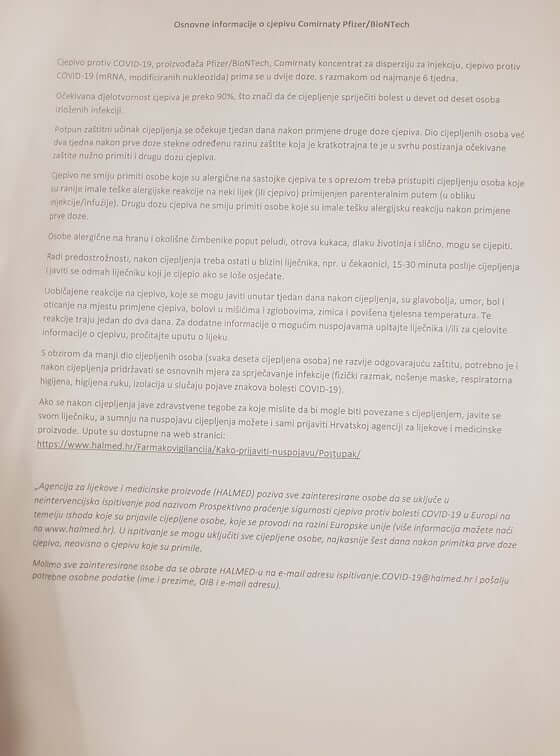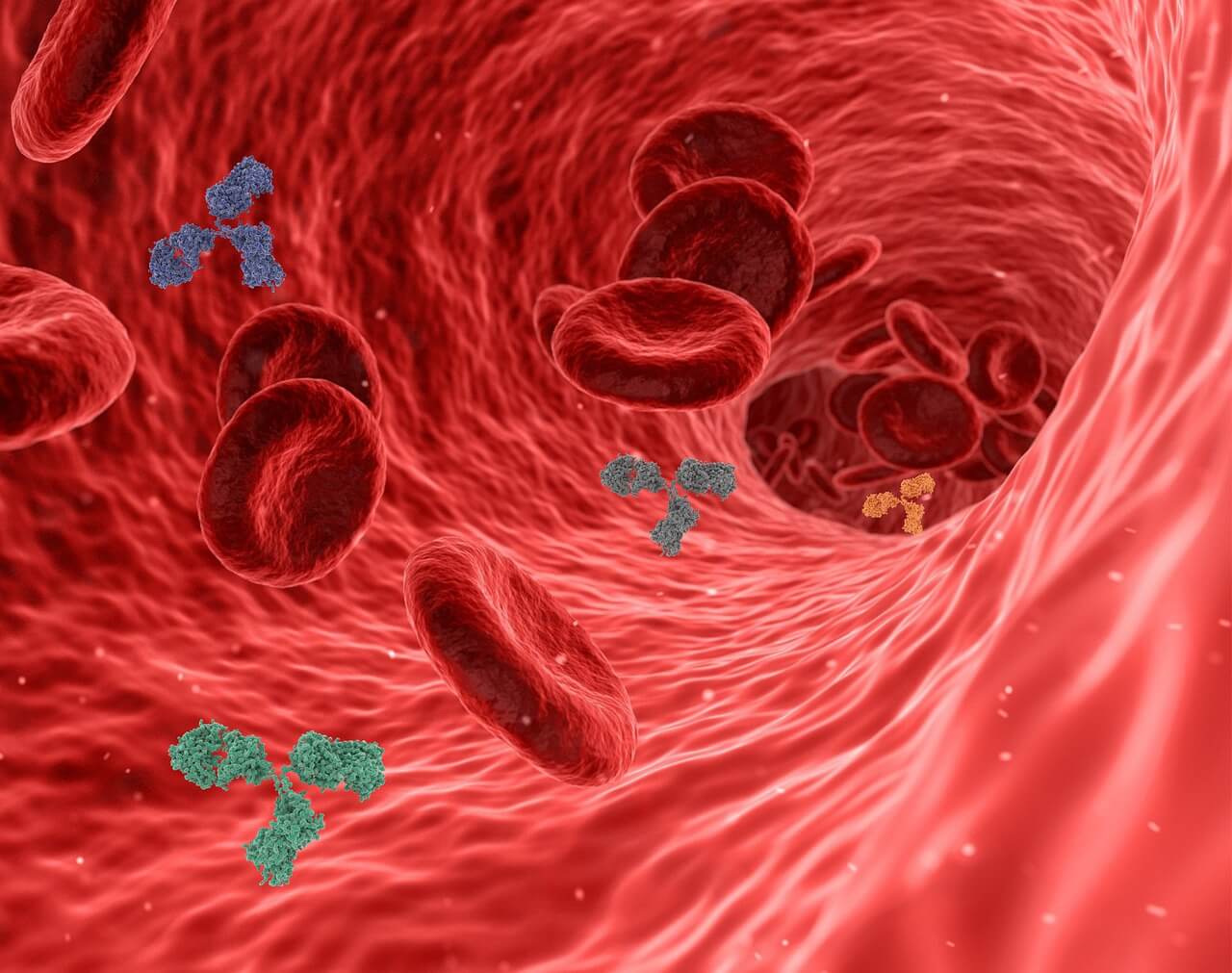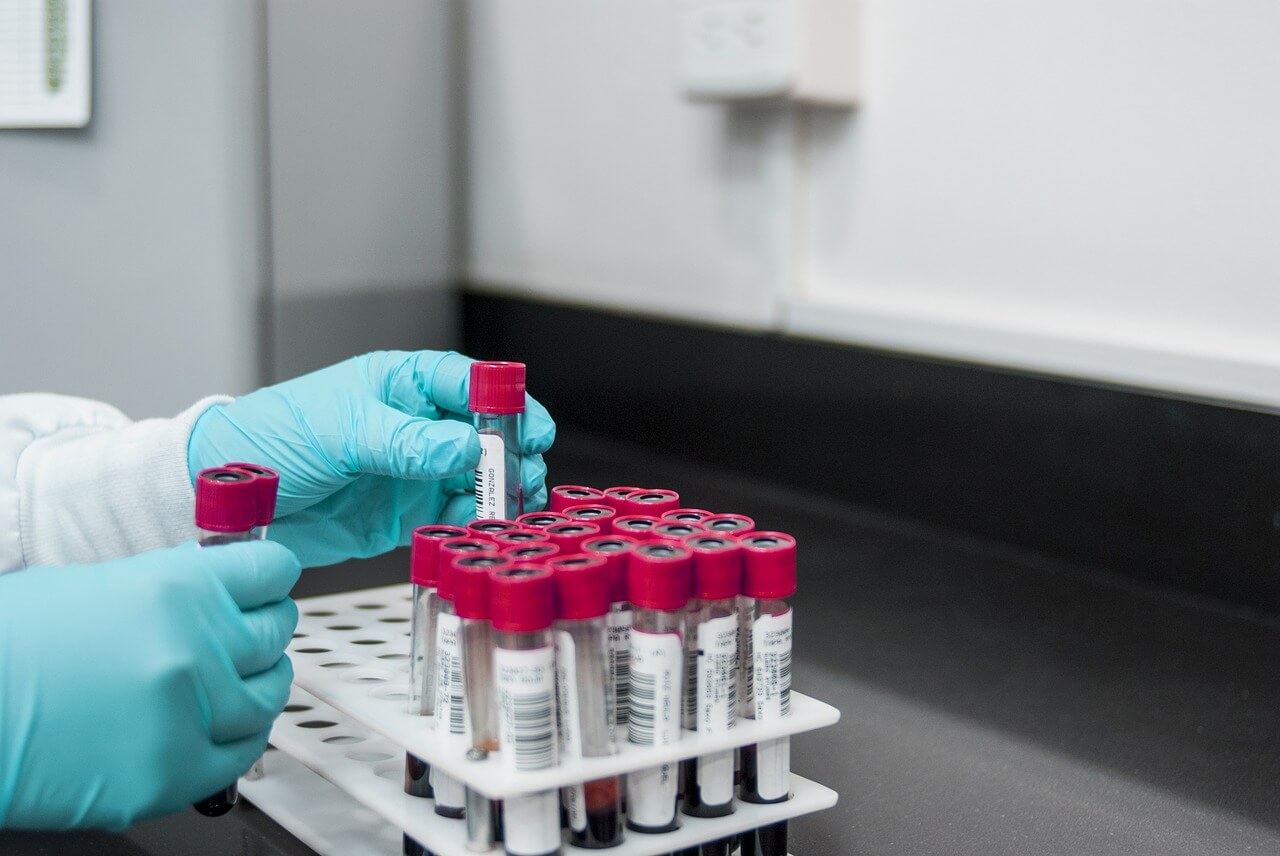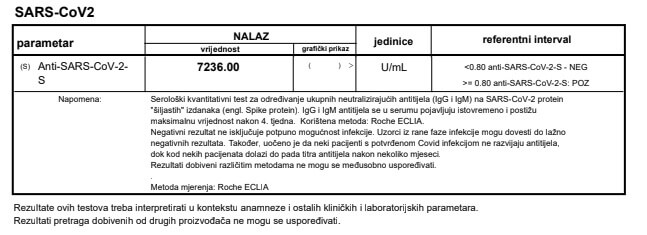Milanović Says Ukraine is Not Only Crisis That Deserves Attention
ZAGREB, 22 May 2022 - Addressing the opening of a World Health Assembly session in Geneva on Sunday, President Zoran Milanović said he was following the attacks at hospitals and healthcare institutions in Ukraine with great sorrow and dismay, however, he added, this was not the only crisis that deserved global attention.
This year’s session of the Health Assembly focuses on the theme of "Health for Peace, Peace for Health" and will run from the 22-28 May at the Palais des Nations in Geneva. The war in Ukraine and the COVID-19 pandemic are also the topics on the agenda of the ongoing gathering.
Commenting on the theme of the meeting, President Milanović said that it evoked memories of the shelling of hospitals, healthcare institutions and ambulances and suffering of civilians during the 1991-1995 Homeland War in Croatia.
"At that time even children's hospitals were not safe havens", he recalled.
"Today it is with great sorrow and dismay that Croatia is following the attacks against hospitals and healthcare institutions in Ukraine. However, this is not the only crisis that the world is facing", he added.
"The developments in Ukraine are perhaps in the greatest focus of interest, however, there are many other conflicts occurring on the global level which may also deserve our equal support and attention", said Milanović.
He called for stronger and more inclusive healthcare architecture and for bracing for future threats to public health.
The Croatian president said that the COVID-19 pandemic had exposed great weaknesses in the global health management.
On Sunday morning, Milanović met with the World Health Organisation director-general Tedros Adhanom Ghebreyesus, and expressed support for his reelection to this post.
Also on Sunday, Ghebreyesus bestowed the WHO Director-General's Health Leaders Award on Milanović's wife, Sanja Musić Milanović, a doctor, for her long-standing promotion of health. The ceremony was held before the third edition of the event called Walk the Talk in Geneva.
For more, check out our politics section.
Coronavirus Antibody Count: How to Check Zagreb Vaccine Results?
August 2, 2021 - With one in ten vaccinated people not developing immunity, how can we know our coronavirus antibody count? TCN reporter Ivor Kruljac found an option in Zagreb and learned whether or not his vaccination was a shot in the dark.
Given that a smaller part of vaccinated people (every 10th vaccinated person) fails to develop proper protection, it's necessary to adhere to the basic measures to prevent infection (maintaining social distancing, mask-wearing, maintaining respiratory and hand hygiene, and going into isolation in the event of the development of COVID-19 symptoms - says the paper containing some basic information about the COVID-19 vaccine I received when taking both doses.
The paper also contains info on how to report side effects and lists some common ones (headaches, developing the shakes, sore muscles, a fever that lasts for a day or two). It also assures that people allergic to food, pollen, insect bites, animal hair, and similar issues can take the vaccine, while those who had a severe reaction to the first dose should either not take the second one or approach it with caution.
With all vaccines having their alleged ups and downs, I opted for Pfizer. Why team Pfizer? Well, the more unserious reasons would be that almost everyone I know at TCN took Pfizer, and I wanted to be cool like them, and also, if it was so good that Croatian elites pushed through to take it earlier in the year, then it is probably good enough for me.

Post-vaccine information paper © Ivor Kruljac / Total Croatia News
Check the data, check yourself
But, on a serious note, as with every vaccine you choose, reading the information from the right sources (such as the WHO that started explaining the different technologies and the types of COVID-19 vaccine back in January as well as updating people about the latest info) is the best way to make the choice you feel most comfortable with.
While we witness many people refusing vaccines as they fall victim to fake news, conspiracy theories, and misinformation, some people refuse it for legitimate reasons. Those who suffer from blood clots have more than fair issues and questions about taking the vaccine.
It's worth noting that before you take the vaccine, a staff member will ask you a series of questions about your overall health (do you take any regular medications, have you already had COVID-19, do you have any chronic conditions, did you take antibiotics a month before, etc). Based on your answers, they will determine whether or not you should wait in the presence of medical staff for fifteen minutes, half an hour, or even longer following vaccination, and whether you should even take the vaccine in the first place.
Consulting with your trusty general practitioner and maybe even undergoing a physical examination ahead of vaccination is the best way to be as informed as possible to answer this series of pre-vaccine questions. Paired with general trustworthy vaccine info, your vaccine experience will likely be trouble-free.
Whether your reason for refusing the vaccine is because of a reasonable concern based on the available information and perhaps your current state of health, or because of some rather absurd misinformation, the recently developed situation in the US best presents the efficiency of the vaccine for your personal safety.
As Bloomberg reports, American president Joe Biden warned Americans that COVID-19 is now a pandemic that strikes only those who aren't vaccinated (49% of Americans have been fully vaccinated at the time of writing this article).
''We've still got a pandemic for those who haven’t gotten the vaccination. It’s that basic, it’s that simple, if you’re vaccinated, you’re not going to die,'' Biden said in late July in Cincinnati.
Choose the (un)lucky number
But, let's leave Biden for a second and get back to the issue at hand, one in ten vaccinated people, unfortunately, fails to develop protection against COVID-19. Despite my best efforts, I couldn't really find any solid medical reason as to why that is, but I'll leave that to the scientists and the doctors.
When it comes to the Pfizer vaccine, after my first dose, I felt sleepy, and the moment I came home, I took a really good nap. Was it due to the vaccine or the fact that I had an early morning appointment and I didn't get much sleep the night before? I'm not sure. As for the second dose, I was prepared for a headache and fever. It seems that these side-effects are practically unavoidable when it comes to Pfizer.
The second dose was received on July the 15th, a couple of days went by, and nothing happened. On one hand, that's great, but why am I not experiencing what the majority seem to experience following their second dose? Could it mean it isn't working? Am I number 10? If I was a medical professional I'd have been able to get the vaccine more quickly, and I would get an antibody test to get a better idea of where things stand.

Bloodstream © Pixabay
Public vaccine, private tests
The public healthcare system is one of the values Croats do like, despite their complaints. Pay your taxes and keep healthcare widely accessible. That said, sadly waiting lists can become quite long, and the overall debt left the public unsure whether the required medicines would perhaps be unavailable earlier in 2021. When it comes to non-emergency healthcare services, it may not be the worst idea to go see a private health professional (if you can afford it of course).
One such service is provided by Laboratory Breyer, founded in 1997 by a clinical chemistry specialist, Dr. Darija Breyer.
''Our motivation lies in never-ending research to better our service with the aim of increasing the care provided to our customers. Our best advertisement is the customer experience that serves as a starting point for all future appointments and is a foundation for long-lasting trust in our service. We justify the trust of our customers by expressing the highest concern for their health,'' says their official website.
The accessibility to the service is evident in Breyer now has two locations in Zagreb: Ilica 191 and Ede Murtića 9.
''Polyclinic Breyer is aimed at the customer: quality comes first with both customer and laboratory staff spaces combining maximum efficiency and modern design. Our complete service, starting from the reception to the test result is constantly re-evaluated and monitored. All personnel in both locations are included in all activities regarding quality compliance according to the written procedures and working instructions,'' they explain.
Open for communication; you can learn more and get in touch with the polyclinic here.

Blood analysis © pixabay
(Anti)body count
The informative piece of paper I received says it takes a week after the second dose to reach immunisation, and that our covid certificates for crossing borders will not allow their holders to avoid testing before two weeks from the second dose have passed. So, the plan is simple, wait two weeks and check your antibody levels.
Additionally, sometime during the late evening hours of the eleventh day after the vaccine, the side effects kicked in. I got a bit of a headache, a low-grade fever, and I experienced a bit of shaking. it was of course not all that pleasant but I welcomed it anyway. My body was reacting, and something was happening. So, should I get my antibody levels tested?
Fortunately, with a private clinic being an option, I had time to make a decision, as no appointment in advance was needed.
''How long has it been since you took the second dose?'' the Laboratory Breyer receptionist asked me when I arrived and I said I wanted coronavirus antibody count.
''Two weeks and one day,'' I replied.
''Hm, it might be a bit too early, the time period needed for immunisation can stretch for a whole month after the second dose, that's usually the best time to do the test,'' the expert kindly explained.
An expert, which I'm not, and you should always accept that you can't be good at everything and that someone always knows better than you about something. Still, I kindly asked if I could take the test anyway. Due to the journey, I'm about to take (which TCN readers will have a chance to learn a bit more about in the following weeks), I wanted to see if something had started happening in my body or not. Alright, the immunisation isn't complete, but if they find at least one little antibody in my bloodstream after two weeks, at least we'll know something had started, right?
My turn came quickly, and the nice lady asked me to take a seat and a vile of my blood was quickly taken. The needle was a bit more painful than a mosquito bite typically is, but at least there was no annoying itching afterward. They said the results would arrive in a couple of hours via email.
They carefully sealed the pierced point and suggested I take a seat in a waiting room. Careful examination of the vein a few minutes later confirmed that all was well. The test took a 220 kuna hit to my paycheck, which isn't that bad, maybe more like a slap.
The sample was taken at 11:09 AM, and results were issued at 15:03, so it was all pretty fast. Despite two weeks not being a long time, I already have 7,236 antibodies. So, the taxpayers didn't waste money on vaccinating me. Hip hip, hooray!

Vaccine efficiency confirmation, screenshot: Ivor Kruljac/TCN
Of course, vaccines don't mean you can't get sick, but the chances of death or developing a severe clinical picture are unlikely. It's nice to know that the one act that has been saving humanity from diseases for centuries works like a charm, and hopefully, more and more people will follow this positive scientific tradition and take the vaccine—both for themselves and for others.
Learn more about health in Croatia, including insurance, what to do in an emergency, and how to find dentists and doctors on our TC page.
For more about COVID-19 in Croatia, follow TCN's dedicated page and choose your preferred language.
World Health Organization: Obesity Affects 1 in 3 Children in Croatia
July 10, 2021 - The result of the new survey conducted by the World Health Organization shows that 1 in 3 children in Croatia is overweight or obese.
The new research conducted by Childhood Obesity Surveillance Initiative, Croatia (CroCOSI) showed that 35% of children aged 8-9 are overweight or obese and 17.7% of boys and 11.9% of girls in Croatia are affected. According to WHO Europe, the fact that 1 in 3 children in Croatia suffers from overweight or obesity poses a significant public health concern for Croatia.
Childhood obesity affects both the physical and mental health of children. Overweight and obese children are at a greater risk of developing many diseases such as type 2 diabetes, cardiovascular diseases, asthma, musculoskeletal disorders, high blood pressure, and others. Unfortunately, studies also show that children with obesity often suffer from social disadvantages and therefore, tend to develop lower self-esteem and feel socially isolated. Obesity also plays a great factor in developing chronic non-communicable diseases (NCDs) which was recorded to affect and cause over 90% of deaths in Croatia.
The children obesity survey was conducted throughout Europe and Croatia ranked 7 among the Meditteranean European countries. The Adriatic region also showed the highest percentage of overweight or obese children in Europe with a record of 36.9%. The head of the Health Promotion Division of the Croatian Institute of Public Health, Professor Sanja Musić Milanović, MD, MPH, Ph.D., said that there was an increase of 6% in overweight and obesity among girls in the Adriatic region compared to previous studies. Prof. Sanja Milanović warns that this trend is very concerning and needs to be addressed by the public health policy in Croatia.
Nutrition and lifestyle survey by CroCOSI
The results of the survey will be used to further promote the health activities in Croatian schools. Although regular physical exams for school children is mandatory in Croatia, their nutritional status, physical activity, dietary habits, and lifestyle are not collected in a standardized way. To improve the situation, Croatia joined the Childhood Obesity Surveillance Initiative (COSI) of WHO Europe and named it CroCOSI ( Childhood Obesity Surveillance Initiative, Croatia) in 2015-2016.
COSI is a European movement to continuously monitor the nutritional status of children through a regular collection of comparable data of school children in Croatia aged 8-8.9 years old and their families including lifestyle habits and the environment of the schools they attend. The collective data allow inter-comparison of the health and nutritional trend in Europe and are used in raising awareness of the growing rates of obesity and health problems in Croatia and all the states involved.
For more about lifestyle in Croatia, follow TCN's dedicated page.
For more about Croatia, CLICK HERE.
One Croatian County Among Worst on WHO European Epidemiological Map
April the 20th, 2021 - The coronavirus pandemic is continuing to hold the entire world in its iron grip despite the advent of numerous vaccines which have a high degree of effectiveness against the novel virus, SARS-CoV-2. Unfortunately, one Croatian county is currently listed among the ten worst regions according to the World Health Organisation's European epidemiological map.
As Poslovni Dnevnik writes, Primorje-Gorski Kotar County currently has the worst epidemiological picture in Europe according to the World Health Organisation and their European epidemiological map. Yesterday, there were only eight newly infected people registered in that particular county, which is currently under a local lockdown due to their alarming figures, however, it remains on the list of regions with the worst situation related to the spread of the virus, according to a report from RTL.
Primorje-Gorski Kotar County is the worst in two categories - according to the seven-day incidence (the number of newly infected people per 100,000 inhabitants) and according to the absolute number of newly infected people over the past seven days. What will happen in terms of the strict anti-epidemic measures in that county is not yet known, and as previously mentioned, a local lockdown is currently in force there.
This Croatian county therefore unfortunately leads with a seven-day incidence of 689 per 100,000 inhabitants, but some other Croatian counties are also performing poorly, in fifth place is Varazdin with an incidence of 530, while the sixth is Sibenik-Knin County in Dalmatia with an incidence of 527.
The seventh place is occupied by the continental Croatian Medjimurje County, whose seven-day incidence currently stands at 521. According to the two-week incidence, no other Croatian county has been listed among the ten worst regions in Europe. Sibenik-Knin County is currently in 11th place with an incidence of 1017.
For more on coronavirus specific to Croatia, including updates on travel, quarantine and border rules, as well as the locations of various testing sites up and down the country, make sure to bookmark our dedicated section.
MP Says Remdesivir Purchase Should be Reconsidered due to Questionable Efficiency
ZAGREB, Nov 4, 2020 - Social Democrat MP Pedja Grbin on Tuesday asked whether Croatia would reconsider its HRK 40 million intended for the remdesivir purchase since a World Health Organisation report questioned its efficiency in treating COVID-19.
Grbin raised the issue during a parliamentary debate on the report by Prime Minister Andrej Plenkovic on the meetings of the European Council in October.
Grbin also wondered whether there was a plan for vaccination against coronavirus since the vaccine will not be available to all Croatian citizens.
He welcomed the EU-wide agreement on lockdown, wondering how it would affect the freedom of movement and the functioning of the Schengen border regime.
PM Plenkovic said that he was satisfied with the EU's joint action and the European Commission's support to efforts to strengthen the economy and protect jobs in the coronavirus pandemic as well as resilience to possible future crises.
MP Stephen Bartulica of the Homeland Movement said that Croatia was facing an 8% GDP drop and a budget deficit of more than HRK 30 billion.
"The economic reality is grim and difficult, and green policies cost and require big investments. Our industry should stay competitive and transition should be equal and balanced," he said.
He also asked what was being done to prevent Islamist fundamentalism or would European leaders continue to just express condolences to innocent victims' families.
Regarding the latest terrorist attack in Vienna, PM Plenkovic said that work was underway on joint activities to prevent such incidents.
MP: Croatia should be represented by the president, PM
MP Dalija Oreskovic (SSIP, Pametno, GLAS) warned that the law was not being respected because Croatia should be represented in the European Council by the president of the republic and the prime minister, which is now not the case.
The rule of law cannot be based on what leaders of big parties agree because if the law and the Constitution stipulate that the president of the republic and the prime minister create foreign policy together, that should then be so, said Oreskovic.
Hrvoje Zekanovic of the Croatian Sovereignists asked the PM how much Croatia's contribution to the EU budget would increase, noting that Croatians should be aware that the country would have to pay a billion kuna more.
He believes Croatia should therefore be entitled to greater EU assistance, warning that it would have to borrow money.
Plenkovic said that Croatia's annual contribution to the EU budget was €400 million and that the amount would increase by around €100 million a year.
He explained that HRK 28.5 billion (€3.8 billion) had already been taken and that in the next ten years Croatia would get HRK 173 billion (€23.06 billion) from the EU budget.
For the latest travel info, bookmark our main travel info article, which is updated daily.
Read the Croatian Travel Update in your language - now available in 24 languages
Join the Total Croatia Travel INFO Viber community.
City of Zagreb Unveils Strategy for Improving the Quality of Life for Older Persons
ZAGREB, Oct 1, 2020 - Officials of Zagreb's city administration on Thursday presented the 2020-2024 Strategy for Improving the Quality of Life for Older Persons.
The 30-measure strategy, which was presented on the occasion of the International Day of Older Persons, observed on 1 October, will be implemented in six fields: social protection, healthcare, lifelong learning, various aspects of free time, human rights, and civil society, said Romana Galic, the head of the city department for social protection and persons with disabilities.
Galic said that the implementation of the strategy would create preconditions for adding Zagreb to the World Health Organisation's Global Network for Age-friendly Cities and Communities.
Every tenth resident in Zagreb aged above 85, 1 in 5 residents older than 65
Zagreb boasts that the life expectancy of its residents has risen, which is evident in the data that one in ten citizens is in the age cohort above 85.
In 2019, as many as 220 people living in this city were older than 100.
Also, a share of the elderly in the total population of the city has risen. For instance in 2014, 14% of the city's residents were in the age cohort above 65, and this share rose to 17% in 2011, while in 2018, 1 in every 5 residents were older than 65.
For the latest travel info, bookmark our main travel info article, which is updated daily.
Read the Croatian Travel Update in your language - now available in 24 languages.
Croatia in the World's Top 5 for Alcohol Consumption
The Portal Daily Viz, with the help of data from the World Health Organization, created a map which is solely based on the data of alcohol consumption throughout the countries of world.


